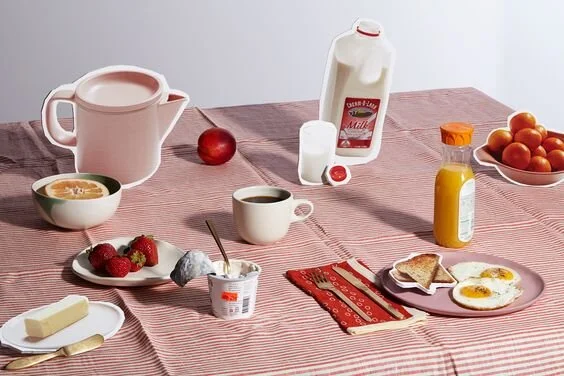
The Narrative is a section for personal narratives on community, kinship, and the connection that truly makes us well.
We believe that the truest sense of self and health comes through connecting with others, in sharing our stories, and finding comraderie rather than dangling purported keys to individual success. You will not find tabloid-esque titles here that only cater to the individual author on how they lost weight or overcame anxiety.
Instead, you will find often vulnerable stories on the intricacies of how broad aspects of our lives affect our health, from immigration to military service to parenthood. This is us . . .
In a book about the battling Kellogg brothers, Howard Markel tells an epic tale that goes way beyond breakfast • Photograph ℅ Janelle Jones
From Tavi Gevinson's New York Magazine cover story to hashtags of #YouGoodMan & #YouOkSis, social media may be a respite from a sense of isolation, a story on mental health is brought to you in partnership with Kaiser Health News • Collage ℅ Helen Roberts
It’s time to take soil seriously, warns Professor of Earth and Space Sciences, David R. Montgomer • Art ℅ Oamul lu
Smudging with sacred native sage or calling others “spirit animals” is only the tip of the iceberg explains Mniconjou Lakotan Taté Walker • Photograph ℅ Studio Testo
Because of the way scientific studies are conducted, Professor Cynthia Curl says it's been hard to health benefits from eating organic food. A new study suggests, however, that there are ways to find out • Photograph ℅ Elle Martinez
Not education. Not income. Not even being an expert on racial disparities in health care • Photograph of midwife trainees delivering a baby at the Juba Teaching Hospital in South Sudan by Stefani Glinski via NPR
The racial disparity in reaping the benefits of breastfeeding is due to the intergenerational experience and support. It stems from the legacy of enslaved Black mothers neglecting their children to nurse white babies • Image ℅ Paula López Droguett
Salt. Refined grains. Sugary milk. This is what the USDA wants to bring back into the cafeteria. We think our kids deserve better, don’t you?
Providers and health care systems must do a better job at treating LGBTQIA+ people and their unique health care needs. Dr. Robin Landwehr shares her tips as a queer patient and provider on how to effectively navigate the system as a patient and empower as a provider • Photography by Victoria ℅ Sano Turdiev








